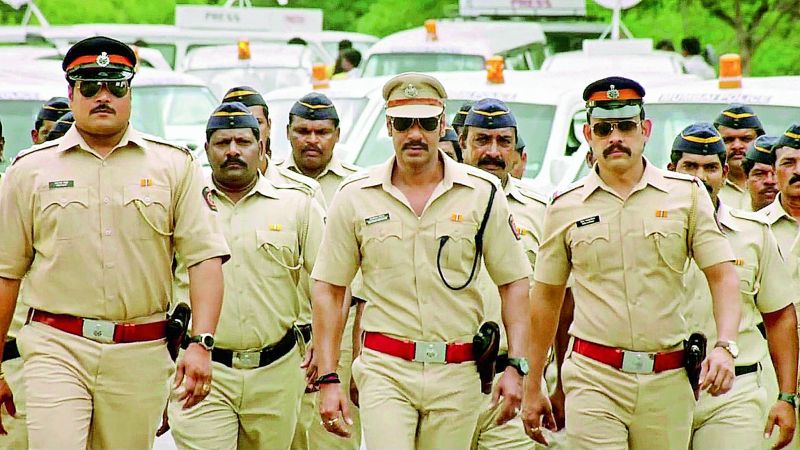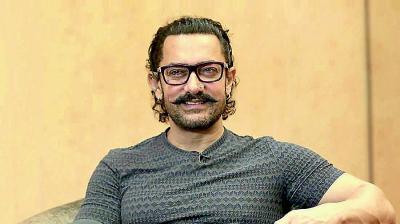Let men be men…
Perhaps it’s time to delve deeper to understand the gender dynamics and decipher these irrational labels.
We are in the era of an immense socio-economic revolution that has given women the impetus to rise beyond traditional norms. However, rigid stereotypical notions may have managed to emasculate many men. Clichéd stereotypes of machismo that no longer hold true continue to be perceived as the ultimate truth. Perhaps it’s time to delve deeper to understand the gender dynamics and decipher these irrational labels.
Birth of a ‘man’
Most Indian movies like Singham, KGF, Pailwaan, Kalank, Petta and others (and many Hollywood films too) show leading actors fighting the bad guys and saving the day. Men who deal with a situation by diffusing it smartly are often not as appreciated as those who use aggression and swagger because the norm is that men should use violence when necessary or be considered weak. How exactly did these notions surface and how were they perpetuated?
Ramesh Aravind, renowned actor, filmmaker, television presenter and an inspirational speaker, sheds some light. He says, “I believe these stereotypes came in to play because of popular stories and precedents set by the cultural myths or the evolution of dramas, songs, art. Also, stories we’ve heard about our ancestors and the swashbuckling lives they lead is the way these stereotypical notions spread.”
 A still from the movie Singham where Ajay Devgn is a cop who fights the bad guys.
A still from the movie Singham where Ajay Devgn is a cop who fights the bad guys.
Such epic stories are best regarded as lessons to imbibe the best from but not as a primer for behaviour in the modern world. Today’s men and women shoulder different responsibilities and have different sensibilities from that of our forebears. It would be unfair to expect them to behave in the same way as our ancestors did, as the world has completely changed from that patriarchal, parochial one.
 Chris Evans admitted he feared failure while signing as Captain America in The Avengers.
Chris Evans admitted he feared failure while signing as Captain America in The Avengers.
Great expectations
In a recent interview, Hollywood star Chris Evans, who features as Captain America in The Avengers series, spoke about his phase of anxiety before signing the contract for this role. He was contemplating the decision for a while, as he feared ‘making a decade-long plan’ and that there was no looking back if he failed to do a good job.
The pressure to perform, be it on set, in the boardroom or in the bedroom, forms the core of his ‘manliness’ for a man, the essence of who he is, conditioned by society to think that his identity is inextricably linked to just these functions, rather than being a small part of a much more complex whole. Males fear to break away from such established stereotypes as they are afraid to be looked at askance by friends, family members, colleagues and acquaintances.
Prasad Bidappa, one of the country’s most iconic fashion stylists, observes, ‘In our society, this can be viewed as being treacherous to your own sex.” He adds, “Our DNA is stamped with gender blueprints that have evolved over millennia, and most global societies conform to these set patterns. In India, men are conditioned by their mothers to behave like Gods, and this often sets the tone for his future life, where his wife is expected to pick up where his mother left off, so stereotypes repeat themselves endlessly.”
Another stereotype is that men must always earn more than their partners.
This however is untrue as, today, many men, including actors, are more than comfortable with their wives bringing home fatter pay-checks. For instance, when actress Deepika Padukone was paid more than Ranveer Singh for Padmavat, he was okay with it and admitted the same in public.
According to a study by the Monster Salary Index in 2016, women earned 25 percent less than men despite being as qualified and capable.
However, according to the 2019 reports from the same online careers and recruitment solution provider, women now earn 19 percent less than men.
This gender gap in pay is closing. It is sure to drop in the years to come, believes environmentalist and activist Vivian John. He says, “According to several surveys, one of the main reasons why women stop working is childbirth. However, New Age men choose to stay at or work from home to take care of their children too. They are also more understanding and supportive of their wife’s goals. Also, nowadays with several firms offering paternity leave as an option, more men are helping their wives in raising their kids.”
The rise of several women in various industries indicates that many have broken the shackles that suppressed them for centuries. Quite a few have even managed to shatter the glass ceiling in very patriarchal professional set ups. However, has this emancipation of women in the work environment caused certain insecurities in men? Prasad says, “When viewed through the prism of cultural conditioning, the dependent Male is not worthy of respect. They say that he lives off his working wife and, in some cases, becomes the homemaker, abrogating his duty as provider and losing the respect of a preconditioned society. This switching of gender roles is unacceptable to many and I have heard of marriage alliances being called off as the groom earned less or was less qualified than the bride.” But as gender roles get less rigid, more and more people are accepting changes. TV series and films about male nannies, stay-at-home dads, women being the main wage earners, etc, are becoming more common. The way the subjects are handled are also more mature, without fun being poked at men who assume different roles than what society once perceived as ‘befitting’ them.
The dance of man
Several professions have been considered unsuitable for males, especially straight men. For example, a common idea is that a man cannot be a classical or a ballet dancer. However, famous dancers like Terence Lewis and other choreographers have graced several stages with poise and class. Associating a hobby, profession or personal choices with sexual orientation is one such stereotype that limits the ambit of opportunities for men. John Anthony, founder of the largest dance congress in Asia, believes that art has nothing to do with sexual orientation.
“Such assumptions come from a very primitive school of thought. It is just a dance form and must be perceived as art, which is not subjective to gender. I have been teaching for over 13 years and have been a dancer for over three decades. Throughout my career, I have been a solo trainer and I mastered Latin dance. At times, there is a need for me to dance the female role while teaching male dancers. This doesn’t emasculate me in any manner; it is solely because of the passion for the art. This has only helped me in mastering my art and the knack for teaching both male and female students. Be it contemporary or Bharatnatyam, the art is given prominence and has no relation with the sexual orientation of a person,” John asserts.
 Akshay Kumar and Twinkle Khanna share a bond that is beyond stereotypes.
Akshay Kumar and Twinkle Khanna share a bond that is beyond stereotypes.
In a recent interview with Twinkle Khanna, she talked about how her husband – actor Akshay Kumar – cries easily while watching a movie. This revelation has been considered shocking by people who have been brought up believing that an action hero and martial arts expert should not exhibit such ‘weakness’. One of the most firmly entrenched ideas of masculinity is that a real man doesn’t cry. He is forced by customs to stay strong and express his grief in a discreet manner. From a young age, little boys are told ‘not to cry like a girl’ and they grow up being incapable of handling their emotions effectively. Thus, with gender confinement instilled from a young age, men are always forced to stay stoic and to never let their guard down.
Psychologist Sharanya Jithin explains, “Gender stereotyping happens even before a child enters the world. Society plays a vital role in creating this difference. Colours are assigned to sexes and it’s almost impossible to take a neutral stance. Conditioning is a process that trains an individual to behave in a socially desirable way. For instance, when there is a doll and a car placed beside each other, gender confinement always prompts girls to pick the doll and boys to go for the car. This is a classic example of how we embed the attributes of ‘machismo’ in boys and ‘caring’ to girls.” A boy who picks a doll is often scolded, or the doll snatched away from him quickly, only to be replaced by a car or action figure. As the male child grows, several such instances instil in him the belief that there is only one ‘right’ way for him to behave and any other way will result in social criticism or even ostracism.
Kumar Jagirdar observes that several men tend to suppress their emotions to save themselves from falling prey to criticism. He says, “I’ve been a men’s rights activist for almost two decades now and I can confidently say that nobody believes men have issues due to the society’s gender bias against them.
The very idea of having a men’s welfare association has been condemned. As activists, we have faced humiliation from government officials when we stand up for these atrocities against men. In situations when a man runs to a police station with tears in his eyes, he is mocked and his gender identity is questioned. The belief that ‘being a man is about staying strong and bold’ is deeply embedded in the minds of many from a young age.”
Kumar says, “However, men are coming forward and expressing their woes in recent times. These views might be contradicted by several feminists but men’s rights activists are in a minority and our woes must be heard and given an equal and rational opportunity.” Sharanya shares that among her clientele, boys or teenagers are usually afraid to seek therapy for themselves. “They are almost always referred by their peers or an institution,” she says, which just shows how much of a taboo there is in their minds against opening up to anyone about their problems.
The idea that strong men don’t get depressed is surely a fallacy, then. Film director, TV personality and author Karan Johar has been vocal about fighting clinical depression and undergoing therapy. In an interview he said, “The psychologist told me that you are going through depression and, as a result of that depression, there is anxiety. And then I went through a series of anti-anxiety medication. A year-and-a-half later, when I stopped it, I realised I was in a much better condition.” Film star Shah Rukh Khan, too, confessed that he had sunk into depression after his shoulder injury in 2010.
 Shah Rukh Khan
Shah Rukh Khan
With celebrities openly discussing their issues, an atmosphere of understanding seems to be slowly evolving. Sharanya says, “It is very important for us, as a society, to provide a gender-neutral world where men and women live comfortably in their own skin. We must stop perpetuating different labels and allow men to express their deepest apprehensions without being judged. By doing this we are not only reducing the crime rate indirectly but we are also practising empathy. This, in my opinion, will make the world a kinder, loving and more compassionate place.”
According to her, making men suppress their feelings can be very dangerous. “Masking their emotions is very detrimental to men’s mental health. Irrational emotions that have had to be suppressed thus land up eventually being acted out dangerously. This is one of the reasons behind sexual aggression and ensuing harassment of others,” she points out.
With the aim to break these stereotypes, New Age dancers are inventing newer styles. John elaborates, “In recent times, dancers have introduced the concept of same-sex dancing, where guys dance in both the female and male roles. This has never raised a question about their gender preferences.”
 The cast from the movie Kalank, where the protagonist (Varun Dhawan) fights the bad guys.
The cast from the movie Kalank, where the protagonist (Varun Dhawan) fights the bad guys.
A new equality
“I disagree with this judgmental society that typecasts men based on their hobbies and choices they make in life,” says Vivian. Sharing his own experience of being misjudged based on stereotypes, Vivian narrates, “People judge me for my long hair and skinny physique, but they are ignorant about the fact that I’m growing my hair for a cause, which is to donate it. I normally handle being discriminated against with humour, depending on the kind of stereotypical statement that is shot at me. I’m not saying men need help all the time but, I believe, if equality is the need of the hour, then it must not be corrupted by biases.”
Ramesh reflects his views, “I personally feel, apart from biological compulsions, there is no need for stereotyping of any kind. There are a few things subjective to genders, such as a woman’s ability to give birth and feed the child. Apart from these, every human, irrespective of gender, is equal.”
As Prasad says, “We do have it in us to accept a changing scenario and power shifts between couples. In my opinion, all couples, regardless of whether they are straight or gay, come to an understanding of how they will share responsibilities and who will wield power in which area. I have often seen the woman take the dominant role, allowing her partner minimal weight while making decisions.”
Ramesh predicts, “In the modern world, when the media is strong and social media is so powerful, and with how opinions and views can spread rapidly, with words like ‘justice’ and ‘fairness’ surfacing often and people standing up for everyone equally with a lot of sense prevailing, I feel these kinds of stereotypes will soon disappear. There are certainly no woes of a man that are different to that of a woman, the best way to look at it is to holistically consider the woes of human beings as one.”
According to Prasad, gender fluidity is now a fashionable concept, but it’s also telling that the rigid separation of men’s and women’s clothes is now blurring at the boundaries. “This acknowledges the seismic shift away from the traditional binaries that defined the masculine and the feminine. This reflects the contemporary attitude of acceptance of the vast spectrum of sexual preferences that define modern sexuality,” he avers.
But, he advises, “Don’t expect attitudes to change overnight, for society passes its attitudes and prejudices from generation to generation, and it will take a few more for the change from within.”


















